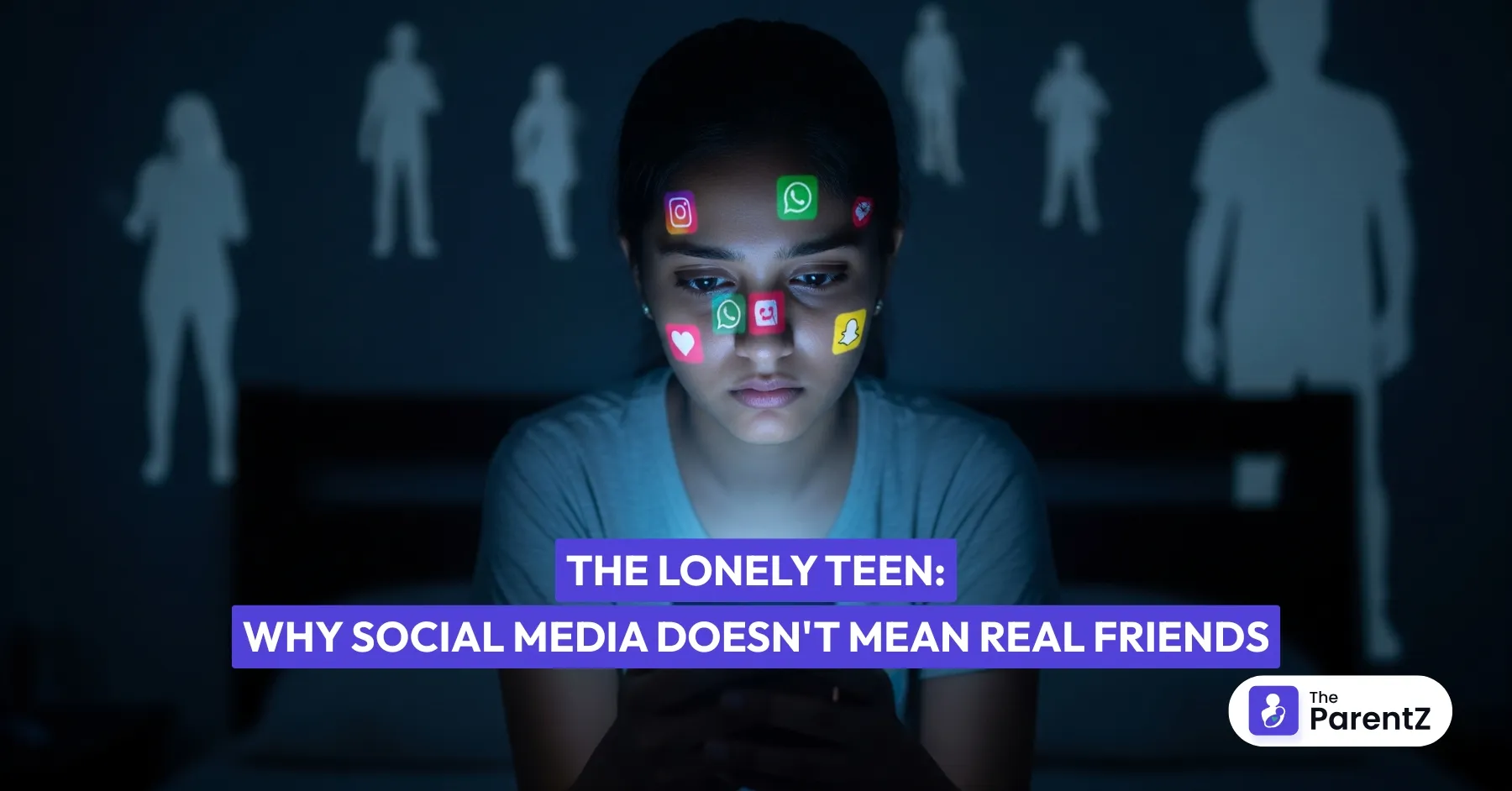It's 11 PM, and you’re scrolling through Instagram. Your phone shows 847 followers, 23 likes on your latest post, and three DMs waiting. Yet as you stare at your screen, you feel completely alone.
If you're a teen today, you probably know this feeling all too well. You're the most connected generation in history, but somehow, loneliness among young people has never been higher. What's going on here?
The Digital Friendship Illusion
Let's be real about what social media friendships actually look like. You've got your Snapchat streaks that you maintain religiously. Your Instagram Stories get views from people you barely talk to. Your Insta comments section is full of strangers saying "relatable" or dropping fire emojis.
But none of this actually replaces sitting with someone who truly gets you. These digital interactions feel like friendship, but they're more like friendship's distant cousin, who you see once a year at family gatherings.
The Numbers Game Trap
Social media turns friendship into a numbers game, and teens are keeping score. How many followers do you have? How many likes did your post get? Who viewed your story? These metrics become a weird way of measuring your worth and popularity.
For instance, having 500 followers doesn't mean you have 500 friends. Most of those people wouldn't even notice if you disappeared from their feed tomorrow. They're scrolling past your life the same way they scroll past ads for skincare products.
Real friendship isn't about numbers. It's about that one person who texts you when you're having a bad day, not because they saw your sad-face emoji story, but because they actually pay attention to how you're doing.
The Highlight Reel Problem
Everyone on social media is basically running their own personal PR campaign. People post their best moments, their perfect lighting, their funniest thoughts. What you don't see are the moments when they're crying over math homework or fighting with their parents.
This creates a really messed-up comparison game. You're comparing your real, messy, complicated life to everyone else's carefully posted highlights. It's like comparing your rough draft to their final outcome. So, of course, you're going to feel like you're not measuring up.
When your "friends" only know the version of you that you post online, can they really know you at all?
The Validation Trap
Social media friendship often becomes about validation rather than connection. You post something hoping for likes and comments that make you feel good about yourself. But this kind of validation is addictive and temporary, and you need more and more of it to feel okay.
Real friends don't just make you feel good; they also challenge you, call you out when you're being ridiculous, and stick around when you're not at your most likable. They see you without filters, literally and figuratively.
When Digital Connections Actually Work
Social media isn't all bad for friendships. Some teens have found genuine connections online, especially those who feel different or isolated in their real-world communities. LGBTQ+ teens in conservative areas, kids with rare interests or conditions, or those dealing with social anxiety have found real support and understanding online.
Gaming communities, Discord servers, and even comment sections can sometimes lead to meaningful relationships. The key difference? These connections usually move beyond the platform. They involve real conversations, shared experiences, and mutual support during tough times.
The Real Difference
So what makes a real friend different from a social media connection? Real friends know your weird habits, your family drama, and what makes you laugh until you snort. They've seen you at your worst and still choose to hang out with you.
Real friends have awkward silences with you, and it's not weird. They remember what you told them last week. They notice when you're off, even if you're posting normally. They make plans with you that don't involve taking pictures to prove you hung out.
Conclusion
You don't have to delete all your social media accounts and become a hermit. But maybe it's worth asking yourself: Who actually knows the real you? Who would you call if something terrible happened? Who makes you feel less alone in the world?
Those people, whether you met them online or offline, are your real friends. The rest are just an audience.






Be the first one to comment on this story.